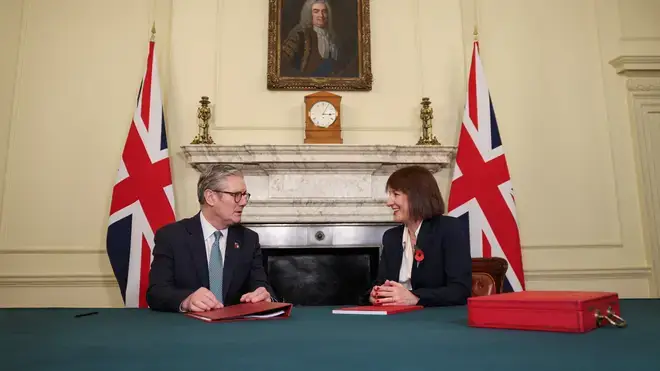Since winning the UK’s general election in July, Labour has faced sharp swings in the economic outlook and a shifting public mood.
With the UK economy set to be grinding to a halt, inflation rising again and backlash among businesses over tax-raising plans, a “cloudy” economic outlook looms over the Labour Government as 2024 draws to a close.
But the Government says it has reset the public finances and is heading into the New Year with more cash and big plans for growth.
Since winning the UK’s general election in July, taking the reins after 14 years out of power, Labour has faced sharp swings in the economic outlook and a shifting public mood.
Sanjay Raja, senior economist for Deutsche Bank, summarised it as “an eventful year in the UK”.
“From a surprise early election, to a bigger bounce in GDP (gross domestic product), the UK economy whipsawed from peak pessimism to start the year to rapid optimism by spring,” he said.
“Pessimism has hit the UK economy again post-budget, however. And the economic outlook remains as cloudy as ever.”
2024 begun on a more positive note with the UK economy returning to growth, and surpassing expectations following a short-lived recession at the end of last year.
But recent official data showed that GDP declined by 0.1% in October, following a 0.1% fall in September – marking a shift which Chancellor Rachel Reeves admitted was “disappointing”.
And new forecasting from the Bank of England showed the economy is heading toward zero growth between October and December, worse than the 0.3% lift it had previously predicted.
At the same time, a changing picture for inflation threatens to muddy the waters for the Government in 2025.
“The UK won the G7 race to get headline inflation down to target,” Mr Raja said, after Consumer Prices Index (CPI) inflation dropped to spend three months below the 2% target level earlier this year.
“A big jump in price momentum looks likely to start 2025, however, with CPI jumping to an eight month high in November at 2.6%.
“The rise in national living wage combined with changes to employer national insurance contributions (NICs) will result in a strong pass-through of costs into retail prices,” Mr Raja predicted.
The plan to hike NICs for businesses sparked criticism from numerous retailers who said they might have to raise prices or reduce staffing levels to mitigate higher costs.
And the Bank of England said it was considering whether the measure could affect future inflation.
Nevertheless, Labour received an “early Christmas gift” after new official figures showed the level of Government borrowing fell to the lowest November level in three years.
Danni Hewson, head of financial analysis for AJ Bell, said: “Pay rises, increases to benefits and the overall impact of stubborn inflation have added to the demands on the public purse and the stark reality is that the Chancellor did have tough choices to make if she wanted to even start to balance the books.”
Chief secretary to the Treasury Darren Jones insisted the Government had “wiped the slate clean” with the public finances and was now “focused on investment and reform to deliver growth”.
With the tax measures set to raise an extra £40 billion a year, the Government will be hoping to pour the extra revenue into schools, the NHS, transport and housing, with the investment laying the foundations for growth.
But Alison Ring, the director of public sector and taxation at the Institute of Chartered Accountants in England and Wales (ICAEW), warned that cash remains “tight” for the Government which will be wary of stagnant economic growth.
“What will worry the Government is that recent economic indicators such as weak GDP growth and rising inflation are flashing amber, and what this could mean for tax receipts and the cost of servicing government debt in 2025,” she said.
“Money remains extremely tight and that is unlikely to change any time soon.”


